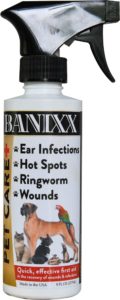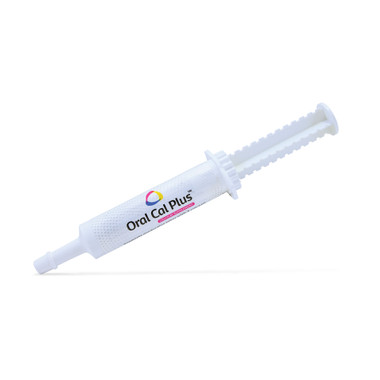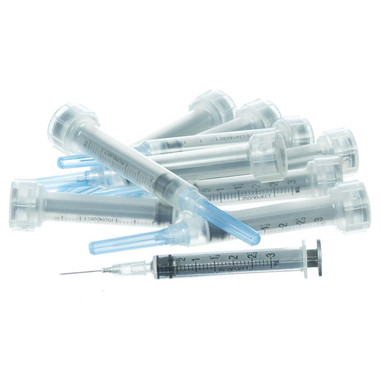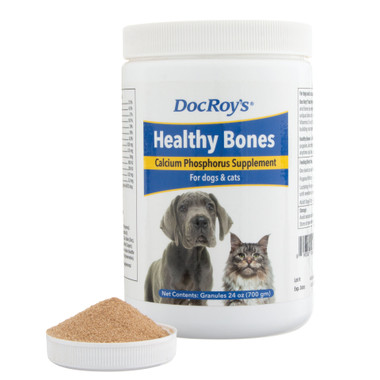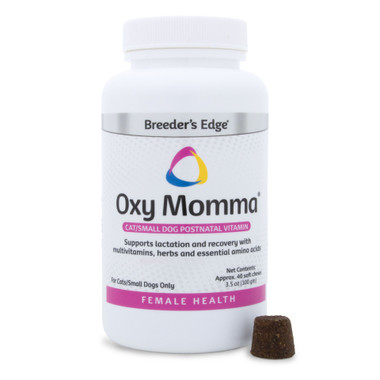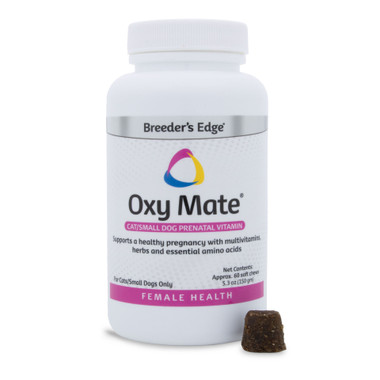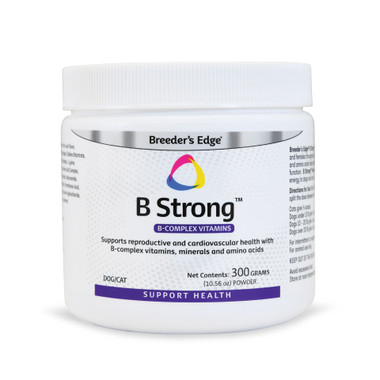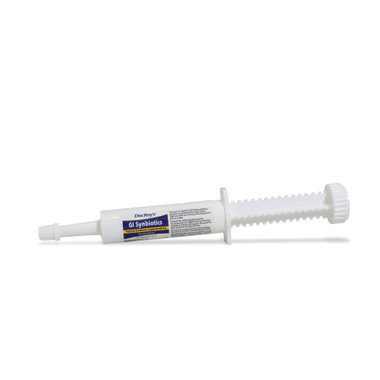The Frenchie Journey--the Pleasure & the Pains
Estimated 0 min read
Is a Bulldog the right dog for you? : Health Challenges & Proactive Care Essentials
 The allure of the French Bulldog, with its bat-like ears and expressive eyes, is undeniable.
The allure of the French Bulldog, with its bat-like ears and expressive eyes, is undeniable.
Yet, beneath that endearing exterior lies a complex tapestry of health and care needs.
As these compact canines wiggle their way into our hearts, understanding their unique challenges becomes paramount. With the right knowledge, ensuring their well-being becomes not just a responsibility, but a rewarding experience.
Let’s unravel the intricacies of caring for these delightful dogs, ensuring every playful leap is backed by robust health.
Quick Facts About French Bulldog Health Issues
- French Bulldogs’ unique anatomy predisposes them to specific health challenges, including respiratory and orthopedic issues.
- Ethical breeding practices can mitigate genetic health risks for future generations.
- Regular veterinary check-ups, early symptom detection, and pet insurance are crucial for proactive care and optimal health.
 The Intricate Anatomy of the French Bulldog
The Intricate Anatomy of the French Bulldog
French Bulldogs, affectionately known as “Frenchies”, are undeniably captivating with their distinctive appearance. Their charm, however, is not just skin deep. The very features that make them so endearing also play a significant role in their health.
Frenchies are just one of many different types of bulldogs. It’s generally accepted that there are around 13 different types of this bulldog breed.
At first glance, a Frenchie’s small stature, large bat-like ears, and squarish head are immediately recognizable. Their compact size and average bulldog weight that typically doesn’t exceed 28 pounds, is complemented by a short snout and large, expressive eyes. This combination gives them a unique, almost comical appearance that has won the hearts of many.
However, beneath this adorable exterior lies a complex anatomy that can predispose them to certain health challenges. Their flat face, known as a brachycephalic facial structure, while cute, can lead to respiratory issues. The short snout means that the soft palate might be too long, potentially causing obstructions in the windpipe. Additionally, their narrow nostrils can degrade their ability to breathe efficiently through their nose.
Their skin, another defining feature, is short and smooth but lies over loose, wrinkled folds.These wrinkles, especially around the face, while contributing to their signature look, can be areas where moisture and debris accumulate. Likewise, leading to potential skin issues.
With this knowledge, we can appreciate the specific health concerns that French Bulldogs encounter and how best to address them.
How Genetics Cause a Variety of Health Issues in French Bulldogs
 As with many breeds, selective breeding practices have highlighted certain physical traits in French Bulldogs, leading to their unique appearance. However, these same practices have inadvertently introduced or amplified several health challenges.
As with many breeds, selective breeding practices have highlighted certain physical traits in French Bulldogs, leading to their unique appearance. However, these same practices have inadvertently introduced or amplified several health challenges.
To truly appreciate and care for a Frenchie, it’s essential to delve deep into the genetic factors that influence their health. By understanding the genetic underpinnings of their health issues, owners can make informed decisions about their care. This includes selecting only from a reputable breeder but also to recognizing early signs of health problems.
Brachycephalic Airway Syndrome (BAS)
Brachycephalic Airway Syndrome (BAS) might sound complex, but its roots lie in the very features that make French Bulldogs so irresistibly adorable. The term “brachycephalic” refers to dogs with a short, flat skull shape that leads to a compressed upper respiratory system. For Frenchies, this means their lovable squashed faces come with some respiratory challenges.
The primary cause of BAS is the anatomical abnormality associated with the facial structure that’s characteristic of Frenchie dogs.
To begin with, the nasal bones in French Bulldogs are shorter than in other breeds. This results in narrow nostrils, medically termed as “stenotic nares.” These constricted nostrils limit the amount of air that can flow into the nostrils, making it harder for the dog to breathe. It’s especially noticeable during physical exertion.
Secondly, there’s the soft palate or the soft part at the back of the roof of the mouth. In brachycephalic breeds like the French Bulldog, the soft palate is often too long for its mouth length. This means the palate can extend into the airway and partially block the entrance to the trachea. Albeit more obvious, especially when the dog is breathing heavily.
Some French Bulldogs may also have a trachea (windpipe) that’s narrower than normal. This condition, known as tracheal stenosis, further restricts the flow of air to the lungs. Furthermore, some Frenchies may have a hypoplastic trachea, which means that the windpipe is narrower than it should be. This makes it even more challenging for air to flow to the lungs.
These anatomical abnormalities combined can lead to a series of respiratory challenges. When a Frenchie tries to inhale, the air has to pass through quite narrow nostrils. It then proceeds past an elongated soft palate, and potentially through a constricted trachea. This makes breathing inefficient and can lead to the characteristic snorting or noisy breathing often heard in these dogs.
The restricted airflow doesn’t just cause noisy breathing; it has a domino effect on the dog’s health. Reduced airflow means less oxygen reaches the lungs. Over time, this can strain the heart as it works harder to pump oxygenated blood throughout the body. The lack of adequate oxygen can also lead to reduced stamina, making activities like playing or even walking more strenuous.
In addition, the effort required to pull air through these constricted passages can lead to inflammation and swelling, further narrowing the airways. This vicious cycle can exacerbate the symptoms over time, leading to more pronounced breathing difficulties. It’s a struggle, especially in hot or humid conditions.
Worse Allergies
 It’s worth noting that French Bulldogs can also suffer from a broader range of allergic reactions. Their immune system, when encountering certain allergens, can overreact, leading to a cascade of symptoms.
It’s worth noting that French Bulldogs can also suffer from a broader range of allergic reactions. Their immune system, when encountering certain allergens, can overreact, leading to a cascade of symptoms.
Apart from skin irritations, Frenchies can exhibit respiratory symptoms due to allergies. These include sneezing or wheezing, possible digestive issues like vomiting or diarrhea. Indeed, even behavioral changes may take place due to allergies. Common allergens include certain food ingredients, pollen, dust, or household cleaning products.
Managing allergies in French Bulldogs often involves a two-pronged approach. Firstly, identifying and eliminating the allergen is crucial. This might involve dietary changes, environmental modifications, or even allergy testing. Secondly, symptomatic relief, through medications or topical treatments, can help alleviate the immediate discomfort.
Painful Skin Conditions like Dermatitis
The endearing wrinkles that give French Bulldogs their distinctive appearance can also be their Achilles’ heel. These skin folds create warm, moist pockets, ideal for bacterial and yeast growth. When combined with factors like perspiration, residual moisture from bathing, or accumulated debris, it’s a recipe forskin fold dermatitis.
An owner might notice their Frenchie excessively scratching or biting around these folded areas. The affected skin might show signs of redness or even develop sores. Regular and meticulous cleaning of these folds, ensuring they remain dry, is paramount. If an infection sets in, it might requiretopical treatmentsor even antibiotics.
More than Skin-Deep Conditions like Pyoderma
While the term ‘pyoderma’ might sound daunting, it essentially refers to bacterial skin infections. The warm environment in a Frenchie’s skin folds can sometimes lead to minor abrasions. These tiny wounds can be gateways for bacteria to penetrate and cause infections.
A Frenchie with pyoderma might display itching around an affected area, coupled with redness or even a discharge from the wound. The key to managing pyoderma lies in early detection and intervention.Regularly cleaning the skin,especially areas prone to moisture, can stave off these bacterial invasions. If they do occur, a course of antibiotics, either topical or oral, can usually address the issue.
Understanding the unique challenges that a French Bulldog’s skin and coat present requires a blend of knowledge and vigilance. With the right care and attention, these issues can be managed, ensuring that your Frenchie remains as radiant on the outside as they are delightful on the inside.
Otitis Externa Sounds Like a Bad Time
The distinctive flat face of the French Bulldog has a hidden implication: smaller ear canals. These narrowed passages hinder the natural self-cleaning mechanism of the ears. As a result, the ear canals remain warm and moist, creating an environment conducive to yeast and bacterial growth. This condition, known as Otitis Externa, is an inflammation of the external ear canal.
A Frenchie suffering from this condition might frequently scratch their ear or shake their head. Redness or scratches inside the ears and an excess of wax are common signs. The key to managing Otitis Externa lies in regular ear cleaning with acanine-friendly anti-microbial. By ensuring the ears remain clean and free from moisture, one can prevent the onset of infections. If an infection does occur, it might necessitate a course of topical treatments or even antibiotics.
See Nothing Do Nothing with Conjunctivitis and Corneal Ulcers
The large, expressive eyes of a French Bulldog, while a porthole to their playful spirit, are also more exposed to irritants. Their flat face structure makes them more susceptible to conditions like conjunctivitis, commonly known as pinkeye. This inflammation of the eye can be triggered by allergies, environmental irritants, or even a condition known as dry eye.
Moreover, the prominence of their eyes means they are more prone to physical injuries, leading to conditions like corneal ulcers. These are scratches or abrasions on the cornea, the clear front surface of the eye. Most dogs have a long snout that provides some protection to the eyes. Their snout makes contact with a surface or object long before the eyes do, providing a warning. The french bulldog is completely without this protection.
Signs of eye concerns in a Frenchie include red or swollen eyes, discharge, or frequent pawing at the eyes. Preventive measures, such as ensuring the eyes remain clean and avoiding potential irritants like dust or sand, are crucial. In the event of an eye issue, prompt veterinary attention can help address the problem and prevent complications.
No Bones About It: Frenchies Suffer from a Variety of Orthopedic Challenges. These pups just don’t catch a break!
Patella Luxation
Hip Dysplasia
 Hip Dysplasia is a condition where the ball and socket joint of a hip doesn’t develop properly. In a healthy joint, the ball (the head of the femur) fits snugly into the socket (part of the hip bone). However, in dogs with hip dysplasia, there’s a mismatch, leading to an unstable joint.
Hip Dysplasia is a condition where the ball and socket joint of a hip doesn’t develop properly. In a healthy joint, the ball (the head of the femur) fits snugly into the socket (part of the hip bone). However, in dogs with hip dysplasia, there’s a mismatch, leading to an unstable joint.
This instability can cause wear and tear on the joint, resulting in pain and inflammation. Over time, it can severely limit a Frenchie’s mobility and lead to arthritis.
Genetics play a significant role in predisposing a dog to hip dysplasia. Regular screening, especially if there’s a known history in the dog’s lineage, can help in early detection. Management strategies include weight control, physical therapy, and, in advanced cases, surgical intervention.
Invertebral Disc Disease (IVDD): Spinal Strain
The spine of a French Bulldog, like all dogs, is made up of individual vertebrae separated by discs. IVDD occurs when these discs, which act as cushions, either bulge or burst into the spinal cord space. This can lead to nerve compression, causing pain, nerve damage, and even paralysis.
French Bulldogs are genetically predisposed to IVDD due to their compact stature and the structure of their vertebrae. Symptoms can range from mild discomfort to severe pain, with the dog showing reluctance to move, jump, or even displaying a hunched back.
Early detection and intervention are crucial in managing IVDD. Depending on the severity, treatments can range from anti-inflammatory medications and rest to surgical procedures to alleviate pressure on the spinal cord.
The orthopedic challenges faced by French Bulldogs underscore the importance of regular veterinary care and awareness. By understanding the genetic and anatomical predispositions of these conditions, owners can ensure that their Frenchies lead active, pain-free lives.
How Selective Breeding Marred the Health of French Bulldogs
 Selective breeding involves choosing specific dogs to produce offspring with desired traits. Over generations, this has given us the French Bulldog that we know and love. In short, it’s their compact size, bat-like ears, and squashed faces.
Selective breeding involves choosing specific dogs to produce offspring with desired traits. Over generations, this has given us the French Bulldog that we know and love. In short, it’s their compact size, bat-like ears, and squashed faces.
However, this pursuit of aesthetic perfection has come at a huge cost to their health and wellbeing.
While the past cannot be changed, the future of the French Bulldog breed lies in the hands of ethical breeders. Ethical breeding goes beyond aesthetics, prioritizing the health and well-being of the dogs.
By understanding the genetic predispositions of the breed, ethical breeders can make informed decisions. This might involve choosing breeding pairs that don’t carry genes for certain hereditary conditions. Or it may include introducing genetic diversity to reduce the risk of health issues.
Moreover, any ethical breeder will prioritize regular health screenings, ensuring that potential health concerns are identified and addressed early. Besides, they also play a crucial role in educating potential owners, ensuring they are aware of the breed’s unique care requirements.
The French Bulldog’s journey, shaped by selective breeding, is a testament to the power of human choices. As we move forward, the emphasis shifts from mere aesthetics to a holistic approach. Meanwhile, this ensures that French Bulldogs are not only beautiful to behold but can also lead healthy, vibrant lives.
Proactive Care for French Bulldogs: A Blueprint for Owners
Owning a French Bulldog is a delightful experience, filled with playful antics and heartwarming moments.
Yet, the responsibility of ensuring their well-being goes beyond regular feeding and playtime.
Given their unique health challenges, a proactive approach to their care is paramount.
Frenchie owners can provide a life full of vigor and joy to these pups by understanding the importance of regular check-ups. Nevertheless, one can’t discount the knowledge needed to recognize early signs of health issues. And, finally, it’s a good idea to consider the safety net of Pet Health Insurance,
The Cornerstone: Regular Veterinary Check-ups
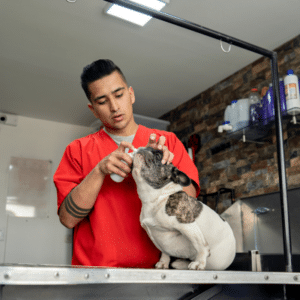 Just as humans benefit from regular health check-ups, so do our canine companions. For French Bulldogs, these visits are more than just routine; they’re unequivocally essential. Regular veterinary visits allow for early detection of potential health issues, from respiratory challenges to orthopedic concerns. These check-ups often include thorough physical examinations, blood tests, and other diagnostic procedures for a comprehensive health overview.
Just as humans benefit from regular health check-ups, so do our canine companions. For French Bulldogs, these visits are more than just routine; they’re unequivocally essential. Regular veterinary visits allow for early detection of potential health issues, from respiratory challenges to orthopedic concerns. These check-ups often include thorough physical examinations, blood tests, and other diagnostic procedures for a comprehensive health overview.
Moreover, veterinarians can offer guidance on diet, exercise, and other care practices tailored to the unique needs of French Bulldogs. This expert advice can be invaluable in preventing potential health issues down the line.
Early Detection: Recognizing the Subtle Signs
While some health concerns manifest with clear symptoms, others might present subtle signs. A Frenchie that’s less playful, shows changes in appetite, or exhibits unusual behaviors might be signaling an underlying health issue. Regular interactions and keen observation can help owners detect these early signs. Whether it’s a persistent cough, a limp, or frequent scratching, these seemingly minor changes can be indicators of health challenges.
The Safety Net: Pet Health Insurance
The unpredictability of health issues, coupled with the potential costs of treatment, makes pet health insurance a worthy consideration. For breeds like the French Bulldog, known for their health challenges, insurance can offer peace of mind. It ensures that, should a health concern arise, the financial aspect doesn’t become a barrier to receiving the best possible care.
Prevention-Focused Tips for Optimal Health
Weight Management: Ensuring your Frenchie maintains a healthy weight can prevent a host of health issues, from joint stress to respiratory challenges.
Dietary Care:A balanced diet, tailored to the breed’s needs, can bolster their immune system and overall health.Exercise with Caution:While Frenchies are playful, it’s essential to monitor their activity levels, especially in hot or humid conditions to prevent overheating.Regular Grooming:Cleaning their skin folds, brushing their coat, and checking their ears and eyes can prevent potential infections and other health concerns. Banixx Pet Careis the ideal solution for all of these skin/ear management issues.
 The journey of caring for a French Bulldog, while filled with joy, comes with its set of responsibilities. By adopting a proactive approach, grounded in knowledge and vigilance, owners can ensure that their Frenchies live a long, vibrant life.
The journey of caring for a French Bulldog, while filled with joy, comes with its set of responsibilities. By adopting a proactive approach, grounded in knowledge and vigilance, owners can ensure that their Frenchies live a long, vibrant life.
In the captivating world of French Bulldogs, their spunky spirit is matched only by their unique care requirements. From understanding their distinctive anatomy to addressing potential health challenges, proactive care is paramount.
At Banixx, our commitment is to empower you with knowledge and solutions for your pet’s well-being. We invite you to join us on this journey, via our dogblog, ensuring that every wag, woof, and playful leap is filled with health and happiness. We have a variety of other blog topics to please everyone, such ashow long can a dog go without peeing, orhttps://creative.science/education/why-dogs-drink-from-the-toilet-and-how-to-stop-it/yep, we’ve got those covered.
Come back to Banixx to continue discovering ways to keep your dog not just happy, but thriving!
What? You haven’t discovered Banixx Pet Care yet, clickhereto learn more about this affordable, canine-friendly antimicrobial!
Sources
https://www.petmd.com/dog/breeds/french-bulldog
https://www.petmd.com/dog/general-health/french-bulldog-health-issues
https://www.handicappedpets.com/blog/common-health-problems-in-frenchies/
https://tomkingskennel.com/french-bulldog-care/
https://www.thesprucepets.com/french-bulldog-breed-profile-1117966
https://www.biomedcentral.com/about/press-centre/science-press-releases/16-12-21
https://www.webmd.com/pets/dogs/what-to-know-about-french-bulldogs
akc.org/dog-breeds/french-bulldog/#:~:text=Health,also%20more%20sensitive%20to%20anesthesia.
southerncrossvet.com.au/french-bulldog-health-issues/



